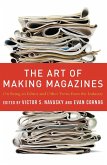
22,95 €
Sofort per Download lieferbar

Broschiertes Buch
DeWitt Clinton and the American Experience, 1769-1828
1. Oktober 2000
Oxford University Press
| eBook, PDF | 24,95 € |
24,95 €
Sofort per Download lieferbar
Ähnliche Artikel

16,95 €
Sofort per Download lieferbar

21,95 €
Sofort per Download lieferbar

9,88 €
inkl. MwSt. und vom Verlag festgesetzt.
Sofort per Download lieferbar

11,95 €
Sofort per Download lieferbar


2,99 €
inkl. MwSt. und vom Verlag festgesetzt.
Sofort per Download lieferbar

12,95 €
Sofort per Download lieferbar

2,99 €
inkl. MwSt. und vom Verlag festgesetzt.
Sofort per Download lieferbar

5,99 €
Sofort per Download lieferbar

10,95 €
Sofort per Download lieferbar
Ähnlichkeitssuche: Fact®Finder von OMIKRON
